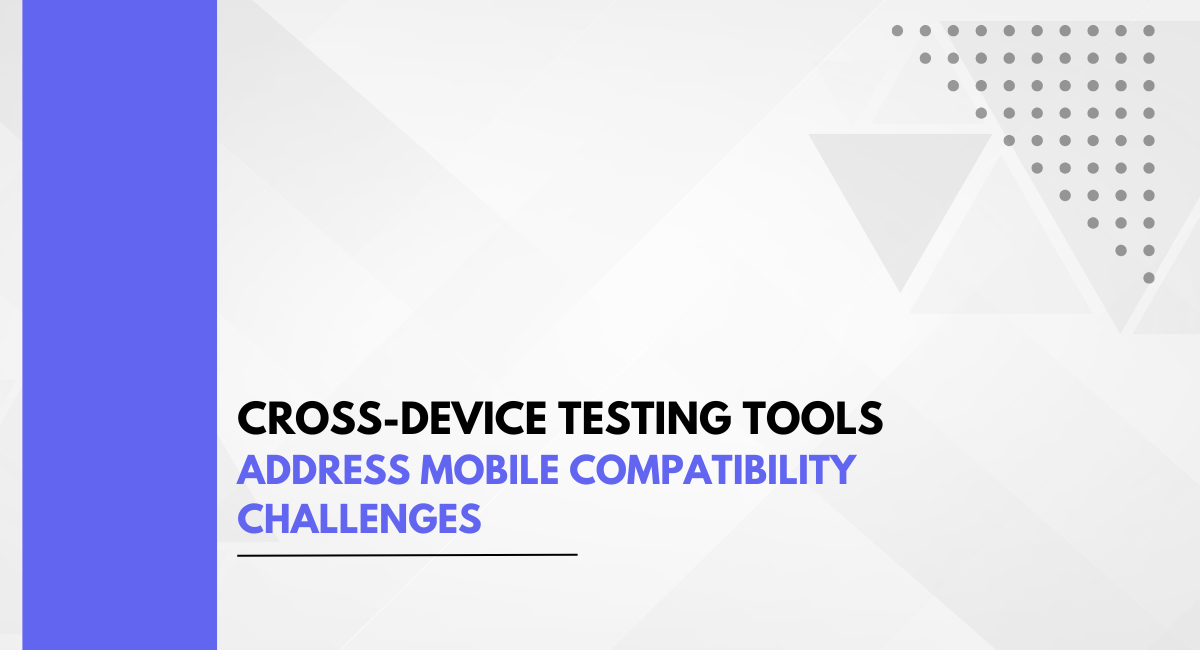Quick Listen:
The mobile ecosystem is a labyrinth of fragmentation, with thousands of Android devices running diverse OS versions and iOS devices adding their own intricacies. Manually testing apps across this sprawling landscape is inefficient and error-prone. According to industry insights, the Cross-Device Testing Tools market, valued at USD 1.2 billion in 2023, is projected to reach USD 3.8 billion by 2032, growing at a 13.2% CAGR, driven by the demand for consistent performance across browsers and devices.
Enter automated and cloud-based testing platforms like Sauce Labs, which provide access to thousands of real devices and emulators, replicating real-world conditions down to specific browser quirks and network speeds. These tools streamline the testing process, enabling developers to identify issues efficiently.
Artificial intelligence is revolutionizing this space. AI-powered testing platforms predict compatibility issues by analyzing usage patterns, optimizing test coverage before problems surface. Integration with CI/CD pipelines allows developers to catch bugs early, reducing time and costs. Innovations like 5G network simulation and real-time analytics ensure apps perform under modern conditions.
Success Stories: Real-World Impact
Cross-device testing delivers measurable results. For instance, e-commerce retailers have used cloud-based testing platforms to ensure their checkout processes function flawlessly across iOS and Android devices, reducing cart abandonment rates and boosting conversions. A glitchy mobile experience can drive customers to competitors, making such tools indispensable.
Similarly, gaming companies have optimized mobile games for both low-end and high-end devices, resulting in smoother gameplay and improved user satisfaction. These examples highlight how testing elevates quality, not just prevents failures.
Startups are also reaping benefits. Open-source tools like Appium provide cost-effective testing solutions, enabling smaller companies to compete. Beyond performance, cross-device testing ensures compliance with accessibility standards like WCAG, fostering inclusivity for users with disabilities. From fintech apps securing transactions to retail platforms enhancing navigation, these tools build user trust. The growing reliance on web and mobile applications in sectors like IT, healthcare, and retail underscores the need for consistent browser performance, as demand for digital platforms surges.
Overcoming Testing Challenges
Device fragmentation remains a formidable challenge. Thousands of Android models, each with unique hardware, create a testing nightmare, compounded by emerging devices like foldables and wearables. For small businesses, the cost of real-device cloud platforms can be prohibitive. While emulators and simulators are more affordable, they often fail to replicate real-world conditions like network latency or battery drain. A button functional in a simulator might disappear on a low-end device with a weak 4G connection, frustrating users.
Automation, while powerful, isn't foolproof. AI-driven scripts catch most bugs but may miss edge cases, such as rare browser quirks on specific devices. Privacy concerns also arise, as cloud-based testing requires sharing app data with third-party platforms. Keeping test suites current amid rapid releases of new browsers, operating systems, and devices is a relentless task.
Yet, the testing, inspection, and certification market, valued at USD 278.94 billion in 2025, is expected to reach USD 474.86 billion by 2035 at a 5.3% CAGR, reflecting the growing demand for robust testing solutions driven by regulatory compliance and consumer expectations for quality.
Driving Efficiency and Market Advantage
Cross-device testing offers significant rewards. Identifying issues during development is far less costly than fixing post-launch bugs that alienate users. A seamless mobile experience fosters brand loyalty think of an app you love because it simply works. For businesses targeting global markets, testing ensures apps perform on region-specific devices, from budget Androids in emerging markets to premium iPhones in North America.
This is critical as digital platforms expand, with the digital marketing software market projected to grow from USD 139.1 billion in 2025 to USD 533.38 billion by 2033 at an 18.3% CAGR, highlighting the importance of robust digital ecosystems.
These tools also support trends like progressive web apps (PWAs), which combine web and native app functionalities. By ensuring PWAs work across devices, businesses deliver fast, app-like experiences without requiring downloads, reducing churn and enhancing user satisfaction. This competitive edge is vital in today's crowded digital marketplace.
The Future of Cross-Device Testing Tools
Looking to 2025 and beyond, cross-device testing is set to evolve. Industry experts stress that testing is the cornerstone of user trust. AI will play a larger role, predicting issues before new devices launch. Testing for AR/VR devices and IoT gadgets will become critical as these technologies gain traction. Sustainability is also emerging as a priority, with optimized testing processes reducing energy consumption to align with environmental goals.
Businesses must adopt hybrid strategies, combining real-device and emulator-based testing for cost efficiency, automating repetitive tasks, and preserving manual testing for critical user journeys. Staying proactive about new device releases is essential. The healthcare analytical testing market, projected to reach USD 25.47 billion by 2030 with an 8.41% CAGR, illustrates how testing ensures quality in regulated industries a principle equally applicable to mobile apps.
In a world where a single glitch can erode a brand's reputation, cross-device testing tools are strategic assets. As you develop or refine your next app, consider: are your testing strategies robust enough to retain users? Embrace these tools, refine your approach, and lead in 2025's mobile-first landscape.
You may also be interested in: Cross Platform Testing for Optimal Software Performance
Book a Demo and experience ContextQA testing tool in action with a complimentary, no-obligation session tailored to your business needs.
